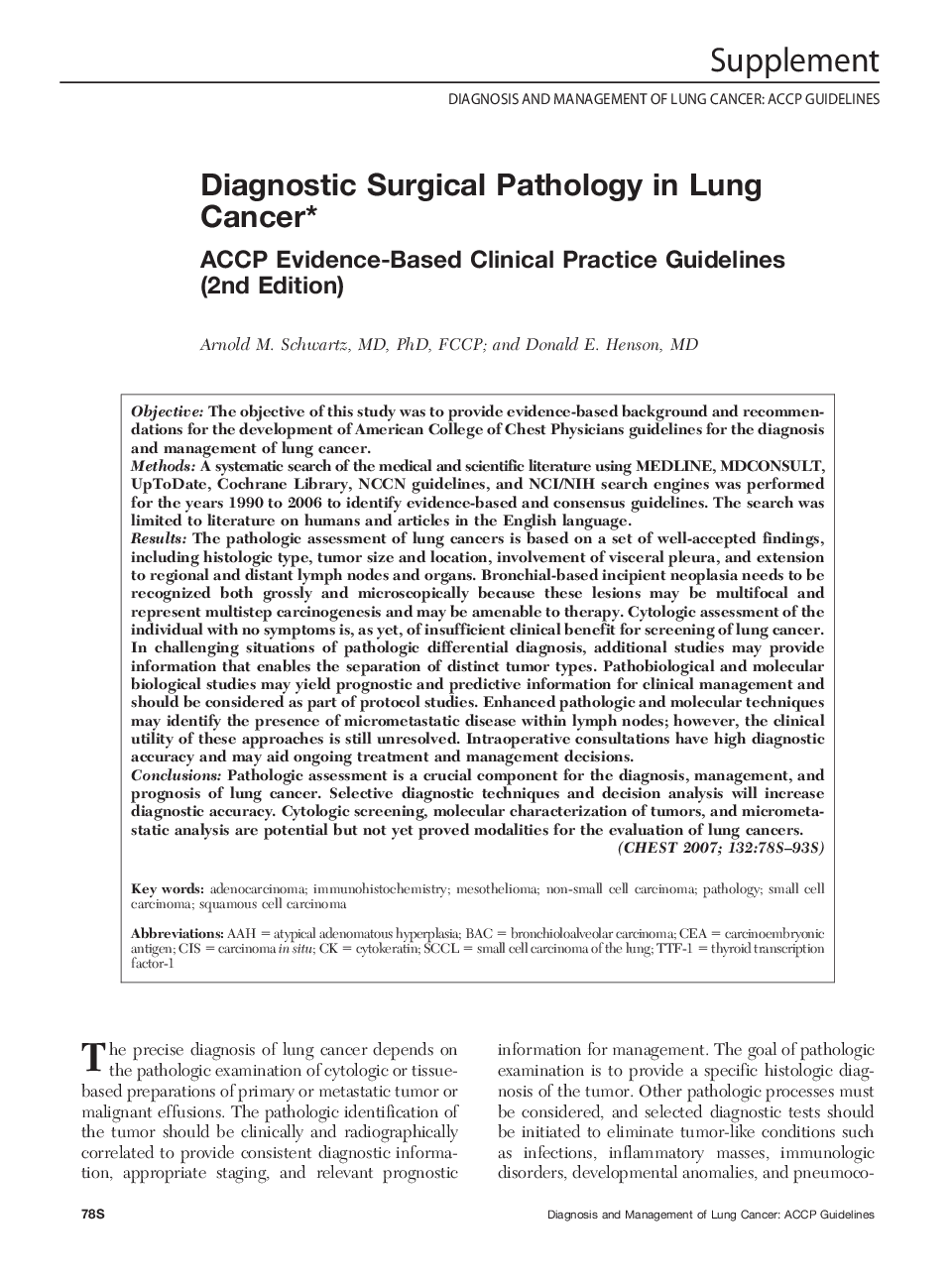| کد مقاله | کد نشریه | سال انتشار | مقاله انگلیسی | نسخه تمام متن |
|---|---|---|---|---|
| 2906389 | 1173449 | 2007 | 16 صفحه PDF | دانلود رایگان |

ObjectiveThe objective of this study was to provide evidence-based background and recommendations for the development of American College of Chest Physicians guidelines for the diagnosis and management of lung cancer.MethodsA systematic search of the medical and scientific literature using MEDLINE, MDCONSULT, UpToDate, Cochrane Library, NCCN guidelines, and NCI/NIH search engines was performed for the years 1990 to 2006 to identify evidence-based and consensus guidelines. The search was limited to literature on humans and articles in the English language.ResultsThe pathologic assessment of lung cancers is based on a set of well-accepted findings, including histologic type, tumor size and location, involvement of visceral pleura, and extension to regional and distant lymph nodes and organs. Bronchial-based incipient neoplasia needs to be recognized both grossly and microscopically because these lesions may be multifocal and represent multistep carcinogenesis and may be amenable to therapy. Cytologic assessment of the individual with no symptoms is, as yet, of insufficient clinical benefit for screening of lung cancer. In challenging situations of pathologic differential diagnosis, additional studies may provide information that enables the separation of distinct tumor types. Pathobiological and molecular biological studies may yield prognostic and predictive information for clinical management and should be considered as part of protocol studies. Enhanced pathologic and molecular techniques may identify the presence of micrometastatic disease within lymph nodes; however, the clinical utility of these approaches is still unresolved. Intraoperative consultations have high diagnostic accuracy and may aid ongoing treatment and management decisions.ConclusionsPathologic assessment is a crucial component for the diagnosis, management, and prognosis of lung cancer. Selective diagnostic techniques and decision analysis will increase diagnostic accuracy. Cytologic screening, molecular characterization of tumors, and micrometastatic analysis are potential but not yet proved modalities for the evaluation of lung cancers.
Journal: Chest - Volume 132, Issue 3, Supplement, September 2007, Pages 78S–93S